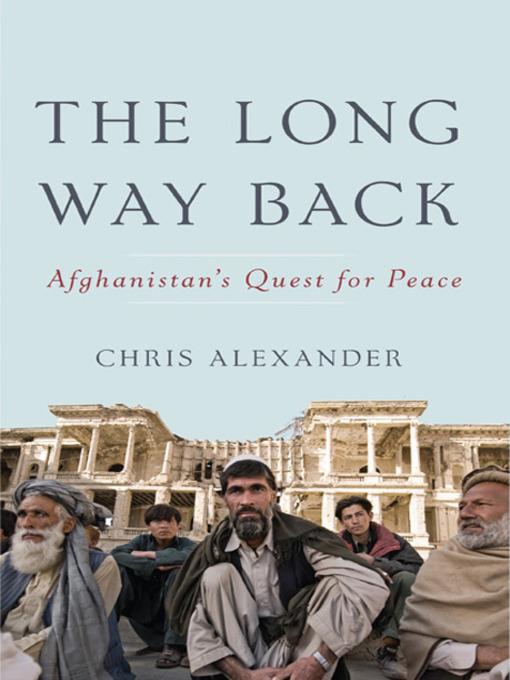
The Long Way Back
Afghanistan's Quest for Peace
فرمت کتاب
ebook
تاریخ انتشار
2011
نویسنده
Jennifer Loisنویسنده
Jennifer Loisنویسنده
Chris Alexanderناشر
Harperشابک
9780062097040
کتاب های مرتبط
- اطلاعات
- نقد و بررسی
- دیدگاه کاربران
نقد و بررسی

September 12, 2011
Alexander, a former ambassador and U.N. deputy who served in Afghanistan from 2003 to 2009, delivers a remarkably thoughtful portrait of the ravaged country, chronicling its search for political stability in the years after the American invasion. He begins by tracing Afghanistan’s epic history to show how its current troubles reflect its tumultuous past. He describes the country’s initial euphoria at the rapid fall of the Taliban regime and Hamid Karzai’s inauguration, the period of its neglect when the world’s attention focused on the Iraq War, and the resurgence of the Taliban and the myriad other problems plaguing the country’s fragile stability. These include drug warlords, a “culture of payback and vengeance,” corrupt or incompetent government officials, Karzai’s growing distrust of foreign intervention, and most importantly, Pakistan’s duplicity in subsidizing al-Qaeda and other anti-Western mujahideen at the risk of its own security. Highlighting positive developments—government ministers who are true reformers, clerics providing a bulwark against extremists, Kabul reclaiming its mercantile history, a new road system, and a reviving economy—he urges other countries, such as the U.S. and his native Canada, not to give up advocating higher troop levels and drone attacks against sanctuaries in Pakistan. Evoking Afghanistan’s history, culture, architecture, peoples, and pastimes, he provides an insightful, firsthand look at a chaotic country.

October 1, 2011
Alexander, a former UN deputy special representative in Afghanistan, offers his view of the pathway to a resolution in that nation. The author proposes a regional solution to the ongoing conflict, one in which both Afghanistan and Pakistan both become "subject to international supervision" as part of a settlement—a "Central Asian version of the 1648 Treaty of Westphalia." Alexander devotes significant attention to the source of the present conflict, Britain's 19th-century strategic "great game" against Russia, and Pakistan's adaption of the tradition to its own purposes through backing Afghanistan's Taliban and other surrogate terrorists. The components of a possible regional agreement are identified in Afghanistan's 2005-6 bilateral treaties with the U.S., UK, EU, China and Pakistan, and in the March 2009 opium interdiction program adopted by the Shanghai Cooperation Organization on the very same day Obama announced his strategic review of Afghanistan policy. Whether such an agreement can be achieved, by way of the destruction of what Alexander calls the "shadow government" of Afghanistan inside Pakistan border provinces, without resulting in the outbreak of another full-scale war in the area or further aggravating relations between Pakistan and India, is questionable. In the meantime, the author is an enthusiastic advocate of the adoption of long-term visions along with benchmarks for their achievement in such areas as the management of the Afghan government's finances and the development of food exports through private enterprise. He is also a supporter of World Bank counterinsurgency investment through the "National Solidarity Programme" estimated to produce 20 percent per annum returns. A controversial account that provides much historical background, along with special insight into current developments.
(COPYRIGHT (2011) KIRKUS REVIEWS/NIELSEN BUSINESS MEDIA, INC. ALL RIGHTS RESERVED.)

























دیدگاه کاربران